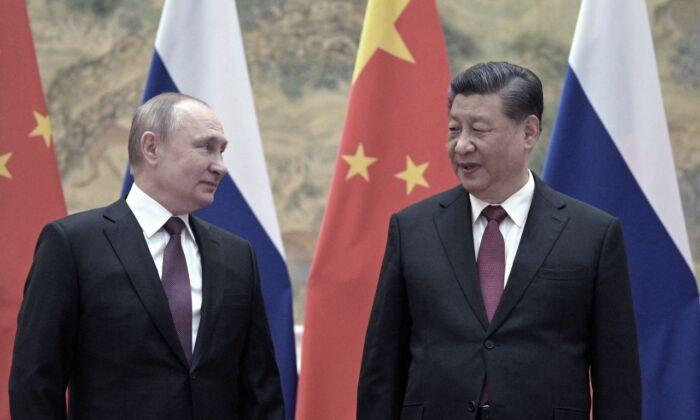Australian Prime Minister Scott Morrison has warned that Western nations would view any military support from China to Russia during the Ukraine conflict as an abomination.
Morrison said that Beijing’s “chilling” silence on the invasion had disturbed him from the outset, saying it send “a terrible message.”
“I think there is a real lack of transparency in the relationship between China and Russia.
“Now at a time when the rest of the world is applying sanctions to Russia and seeking to impose a heavy price on them for their violent and aggressive actions, China actually relieved trade restrictions or trade measures on Russia on wheat for example,” Morrison said.
Noting that other liberal democracies share Australia’s concern, Morrison called on China to be transparent about its relationship with Russia.
“I think it is very important for China to be very transparent about what is their relationship with Russia?
“What is their relationship with Russia when it comes to throwing them economic lifelines during this global crisis?
“And potentially, what if any support has been discussed for military support from Russia? Because that would be an abomination,” Morrison said.

Morrison also said the Australian government would move in lock-step with its partners and allies on these issues.
This is the second time in just over a week the Australian leader has called out Beijing for its lack of response to the ongoing conflict in eastern Europe.
“I found it quite chilling when I spoke to other leaders about conversations that they’ve had with President Putin about these issues, and they’re subjected to a rather lengthy lecture on nationalistic aspirations of Russia and what is rightly theirs,” Morrison said.
“That has a chilling reverberation with similar lectures that I have been on the receiving end of about situations in the Indo-Pacific and what people claim to be theirs,” he said.
Morrison said China was behaving hypocritically over Russia’s attack on Ukraine, pointing out that it was insincere for Beijing to claim to be a major power while supporting Russia through easing wheat restrictions and avoiding condemning its actions.
The prime minister also noted that the partnership was driven by convenience rather than strategy.
“China and Russia have got a fairly interesting history in terms of their engagement. I don’t think anything’s changed about that.
“But there does seem to be some alignment in the sort of world order that they would prefer, to the one that has been in place since the end of the Second World War.
“And we’ve seen that play out over a long time. So there has been a convenient fellow travelling, I think, and that’s how I would describe it,” he said.

Both China and Russia have denied the allegations.
“I’m not going to get into specific consequences,” Psaki said. “I think what we have conveyed and what was conveyed by our National Security Advisor in this meeting is that should they provide military or other assistance that, of course, violates sanctions or supports the war effort, that there will be significant consequences.”
Additionally, the exports to Russia rose by 41.5 percent in the first two months compared to the previous year to $12.6 billion, topping growth with other countries, while imports from Russia rose 35.8 percent, customs data showed.
Meanwhile, the Associated Press reported on March 8 that the Chinese regime’s foreign minister, Wang Yi, said China’s relations with Moscow was iron-clad and that it was one of China’s “most crucial bilateral relationships in the world.”




